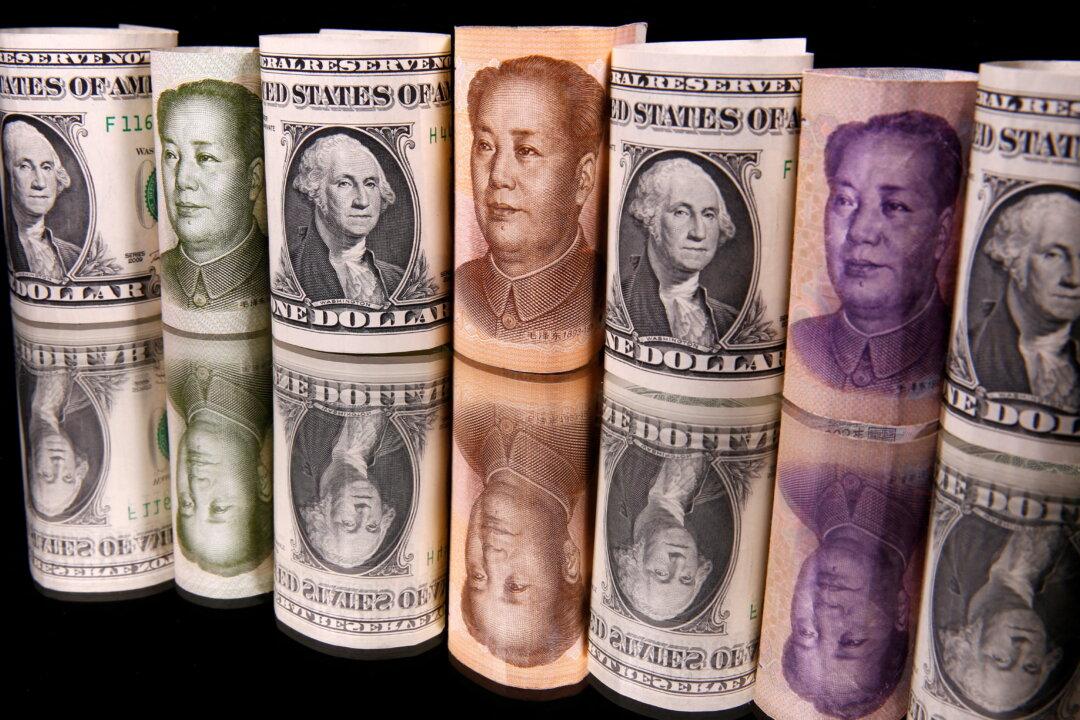As the Chinese renminbi (or interchangeably the yuan) exchange rate moved toward weakening, China’s state-run banks were scrambling to sell off U.S. dollars to mitigate the depreciation of the yuan. The ongoing economic decline is unnerving the communist government, with fears that investment programs will be halted, further aggravating economic deterioration, financial experts observed.
The move by state-owned banks to sell off dollars in the onshore and offshore spot foreign exchange markets, including London and New York, is a new effort by the Chinese Communist Party (CCP) to alleviate the tension of yuan devaluation over the past week, Reuters reported.





